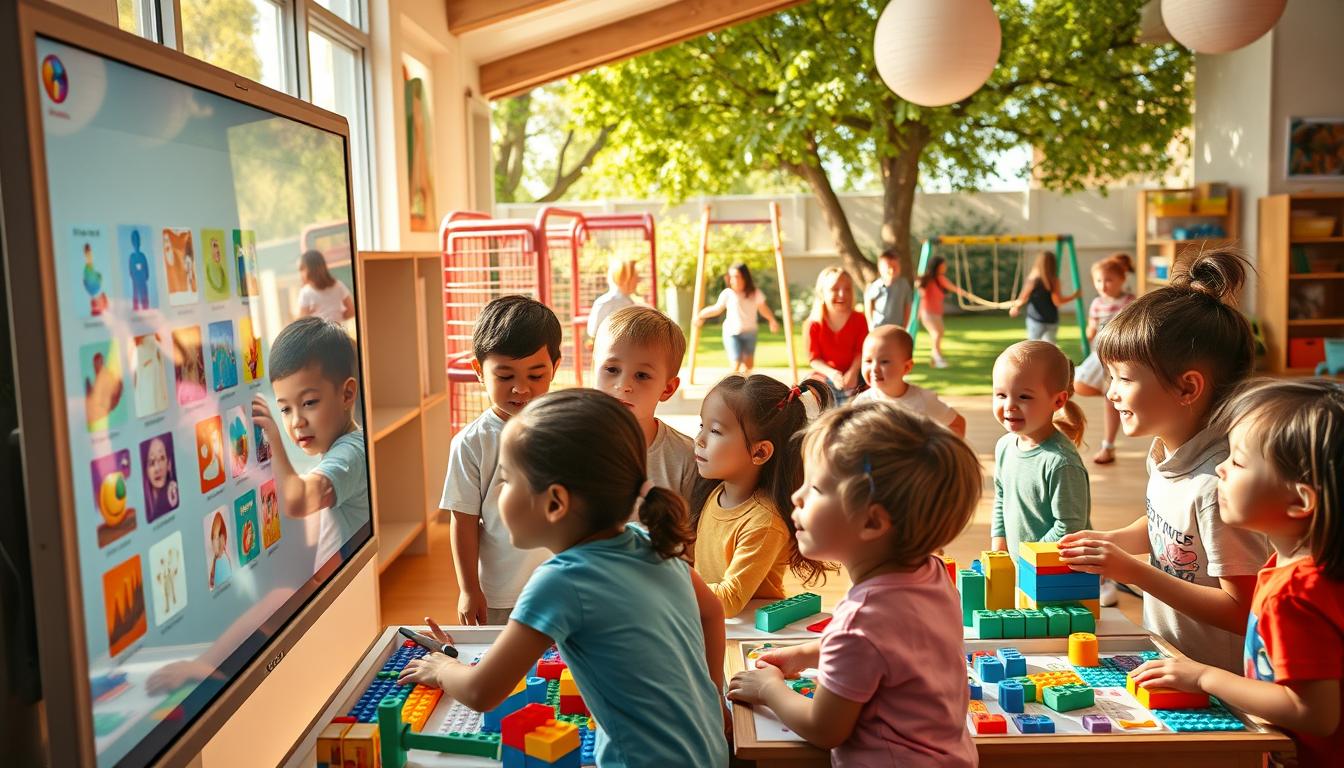Category
Recent Comments
Shop Categories
-
 Baby & Maternity22 products
Baby & Maternity22 products -
 Beauty & Health22 products
Beauty & Health22 products -
 Books & Media22 products
Books & Media22 products -
 Cell Phones & Accessories11 product
Cell Phones & Accessories11 product -
 Colors11 product
Colors11 product -
 Digital Products22 products
Digital Products22 products -
 Featured44 products
Featured44 products -
 Fun11 product
Fun11 product -
 Health & Household33 products
Health & Household33 products -
 Jewelry & Accessories22 products
Jewelry & Accessories22 products -
 Kids' Fashion11 product
Kids' Fashion11 product -
 Preschool Learning11 product
Preschool Learning11 product -
 Sports & Outdoors33 products
Sports & Outdoors33 products -
 Toys & Games22 products
Toys & Games22 products -
 Most Popular66 products
Most Popular66 products -
 New Arrival55 products
New Arrival55 products -
 On Sale77 products
On Sale77 products
Popular
-
 Free Parenting Journey Planner: Doctor Visits & Baby Prep
Free Parenting Journey Planner: Doctor Visits & Baby Prep
5.00 $Original price was: 5.00 $.0.00 $Current price is: 0.00 $. -
 Top 10 Preschool Coloring Book Bundle
Top 10 Preschool Coloring Book Bundle
50.00 $Original price was: 50.00 $.14.99 $Current price is: 14.99 $. -
 86pcs/set Elegant Retro Earrings, Multi-layer Necklace, Earrings, Rings, Four-in-one Multi-piece Jewelry Set for Women, Ideal for Daily Outing, Commuting, Mother's Day, Valentine's Day Gifts, No Box
Rated 5.00 out of 5
86pcs/set Elegant Retro Earrings, Multi-layer Necklace, Earrings, Rings, Four-in-one Multi-piece Jewelry Set for Women, Ideal for Daily Outing, Commuting, Mother's Day, Valentine's Day Gifts, No Box
Rated 5.00 out of 514.99 $Original price was: 14.99 $.4.17 $Current price is: 4.17 $. -
 Smiling in the Sky Kite with Free Flying String - Durable Polyester, Mixed Colors, Perfect for Outdoor Fun
Rated 5.00 out of 5
Smiling in the Sky Kite with Free Flying String - Durable Polyester, Mixed Colors, Perfect for Outdoor Fun
Rated 5.00 out of 56.99 $Original price was: 6.99 $.1.35 $Current price is: 1.35 $. -
 Chic Girls' Summer Outfit Set: Strawberry Embroidered Off-Shoulder Top & Heart Belted Shorts - Breathable Polyester, Machine Washable, Perfect for Outdoor
Rated 5.00 out of 5
Chic Girls' Summer Outfit Set: Strawberry Embroidered Off-Shoulder Top & Heart Belted Shorts - Breathable Polyester, Machine Washable, Perfect for Outdoor
Rated 5.00 out of 519.89 $Original price was: 19.89 $.6.39 $Current price is: 6.39 $. -
 1pc Frameless Oversized Gradient Fashion Glasses for Women, Polygonal Metal Hinge, PC Lens, Fashionable UV Protection Eyewear for Outdoor Activities
Rated 5.00 out of 5
1pc Frameless Oversized Gradient Fashion Glasses for Women, Polygonal Metal Hinge, PC Lens, Fashionable UV Protection Eyewear for Outdoor Activities
Rated 5.00 out of 53.47 $Original price was: 3.47 $.2.05 $Current price is: 2.05 $.
Tag Clouds


Have you ever wondered why some kids get along well with others, while others don’t? It might be because of emotional intelligence. Emotional intelligence is more than just knowing how you feel. It’s about handling those feelings well.
Studies say emotional smarts are more important than being smart in school. By teaching your child about emotional intelligence, you help them make friends, do well in school, and solve problems.
This article will show you why emotional intelligence matters. We’ll share ways to help your child feel better emotionally. Let’s start!
Key Takeaways
- Emotional intelligence is key for kids’ success.
- Teaching emotional awareness helps kids control their feelings.
- Learning to manage emotions improves social skills and friendships.
- Talking with your child is important for emotional growth.
- Empathy grows through stories and fun tales.
What is Emotional Intelligence and Why Is It So Important?
Emotional intelligence lets you know and handle your feelings and others’. It’s key for kids to grow well. It helps them make good choices, have strong friends, and talk well.
It’s very important for kids to learn this. Kids with good emotional intelligence do better in school and have better friends. They also feel happier and pay more attention in class.
Teaching your child about emotional intelligence helps them understand themselves and others. This skill is important for now and later. It makes them strong and able to adapt to new things.
The Four Pillars of Emotion Coaching

Emotion coaching is key for parents wanting to help their kids grow emotionally. It’s based on four main parts that boost emotional understanding.
The first part is awareness of emotions. It’s important to know and name feelings. Talk with your child to help them share their feelings. This builds a strong emotional vocabulary.
The second part sees bad feelings as chances to learn. Don’t hide from tough moments. Use them to teach your child about feelings. This helps them grow strong and smart emotionally.
The third part is about listening and saying feelings are okay. When your child talks about their feelings, listen carefully. Say their feelings are valid. This makes your bond stronger and helps them open up.
The last part is about solving problems with rules. Teach your child to find ways to deal with their feelings but also know when to stop. This helps them feel in control and grow up.
By using these pillars, you can help your child grow emotionally. This not only helps them handle feelings but also builds better relationships for life.
Fostering Emotional Intelligence: Helping Your Child Understand, Manage Feelings

Creating a safe space for kids to share their feelings is key. Show them how to handle emotions by being a good example. Talk about feelings openly to help them understand and grow.
When kids can say how they feel, they also learn to see how others feel. Try games and stories that teach about emotions. These activities help them get better at understanding feelings.
Make sure your child talks about their feelings often. The more they share, the better they get at handling their emotions. This helps them grow and brings you closer together.
Practical, Age-Appropriate Strategies for Parents

Teaching kids about feelings is rewarding. You can help them grow emotionally in small ways. Start by showing your feelings; kids learn from what you do.
Share your feelings openly. Let them know it’s okay to feel many things. This helps them understand emotions better.
Use tools like a mood meter to talk about feelings. It helps kids share their emotions clearly. When you say their feelings are valid, it makes them feel safe to talk about their feelings.
Teaching empathy is key. Read together and talk about characters’ feelings. This helps them understand their own and others’ emotions.
Doing this every day helps your child grow emotionally. It prepares them for better relationships and emotional health later on.
Emotional Awareness and Understanding Emotions

Emotional awareness is key to emotional intelligence. It helps you know your feelings and why you have them. This skill is important for understanding emotions in children and helps them talk about their feelings.
When kids know their feelings, they grow stronger in emotional intelligence skills for kids.
Starting emotional awareness at home is easy. Make a safe place to talk about feelings. Use mood charts to help them share their emotions. Journaling can also help them think deeply about their feelings.
Helping kids understand their feelings means linking what they feel to how to act. When they know an emotion, they can figure out why and how to handle it well. This builds their strength and helps them manage their feelings better.
By teaching emotional awareness, parents help their kids deal with their feelings. This skill lets kids not only know their feelings but also understand others’. It helps them make better friends and feel better emotionally.
Emotional Regulation Techniques for Kids

Teaching kids to manage their feelings is key. It helps them grow strong. There are many ways to help them.
- Deep Breathing Exercises: Teach your child to breathe slowly and deeply. It helps them calm down when they’re upset.
- Mindfulness Practices: Start them with meditation or noticing their surroundings. It helps them understand their feelings better.
- Physical Activities: Encourage them to run, dance, or play sports. It helps them release stress and feel better.
- Visualizations: Show them how to imagine a calm place when they’re feeling overwhelmed. It helps them relax and escape their worries.
These tools help your child feel more in charge. They learn to handle feelings better. By doing these activities together, you help them feel safe and understood.
Building Empathy Through Storytelling

Storytelling is a great way to help your child understand feelings better. It helps them see things from other people’s points of view. By telling stories, you let your child learn about different emotions and thoughts.
Talking about characters’ feelings can make your child’s emotional words better. It leads to deep talks about right and wrong, and how people interact. You can start these talks by asking questions like:
- How do you think the character felt in that moment?
- What would you have done differently?
- Why do you think the character made that choice?
These ways help your child understand and share feelings. It makes them feel connected to others. This shows how important empathy is in their life.
Social Skills Development Through Emotional Intelligence

Emotional intelligence is key for your child’s social skills. When kids know their feelings, they learn how to be with others. This helps them make friends and get along better.
Doing activities that help with social skills is great. Here are some ideas:
- Role-Playing: It’s like acting out real life. Kids practice how to handle different feelings and reactions.
- Cooperative Games: These games teach kids to work together. They learn to help each other and understand others’ feelings.
- Emotion Recognition: Teaching kids to name their feelings helps them connect better with others.
These activities help kids feel good and make friends. They learn to talk better and feel confident around others.
The Importance of Parent-Child Communication

Talking well with your child is key for their feelings to grow. When you talk openly about feelings, you help them feel supported. This lets kids share their thoughts and feelings in a good way.
To make talking better, try these steps:
- Practice active listening: Really listen to what your child says. Let them talk without stopping you.
- Ask open-ended questions: These questions help your child talk more about their thoughts. It helps them share their feelings better.
- Demonstrate empathy: Show your child you get their feelings. Tell them you understand and they’re okay.
These ways help you talk better with your child. They also help your child learn to talk and feel their emotions. When kids feel safe to share, they grow more confident and smart about feelings.
A Note on Your Own Emotions

Being a parent is a big job. It helps shape your child’s feelings. Knowing your own feelings is key for being a good parent.
When you know how you feel, you show your kids how to feel too. This helps them learn to express their feelings and deal with tough times.
It’s important to take care of yourself. Doing things like writing in a journal or exercising can help. It shows your kids that taking care of feelings is important.
Try to think about your feelings often. Ask yourself:
- What emotions am I currently experiencing?
- How do my feelings affect my reactions with my child?
- Am I demonstrating healthy coping strategies during challenging moments?
By understanding your feelings, you teach your child. They learn from you and grow emotionally strong.
Conclusion
Teaching your child about emotional intelligence is a great gift. It helps them deal with feelings and face challenges with confidence. This skill improves their relationships, school work, and overall happiness.
As a parent, you are like an “emotion coach” for your child. This role helps them grow emotionally and strengthens your bond. Every small step you take today can make a big difference in their future.
By teaching emotional skills, you make your family healthier and closer. Always support and talk openly about feelings. This helps your child succeed and be happy at every stage of their life.
FAQ
What is emotional intelligence in children?
Why is fostering emotional intelligence important?
How can I help my child develop emotional awareness?
What are some effective emotional regulation techniques for children?
How can storytelling promote empathy in children?
What role does parent-child communication play in emotional intelligence development?
Can fostering emotional intelligence impact my child’s academic success?
What are some age-appropriate strategies for fostering emotional intelligence?
How can parents manage their own emotions to support their child’s emotional intelligence?
Written by lana saleh
Best offers
Join Risk Free
Subscribe Now
100% Safe
Secure Shopping
24x7 Support
Online 24 hours
Best Offers
Grab Now
Free Shiping
On all order over
Know Us

Your go-to online destination for inspiration, guidance, and resources across various aspects of daily living, covering topics like wellness, style, home, relationships, personal development, and more, all aimed at helping you cultivate a fulfilling and intentional life
Read MoreRecent Posts









































Product Showcase














